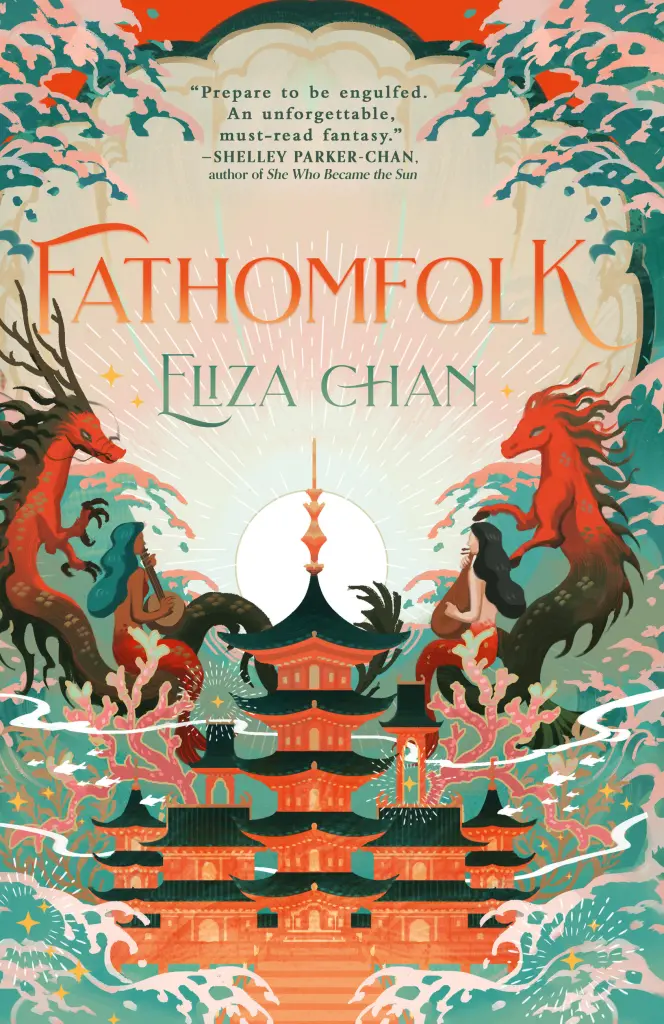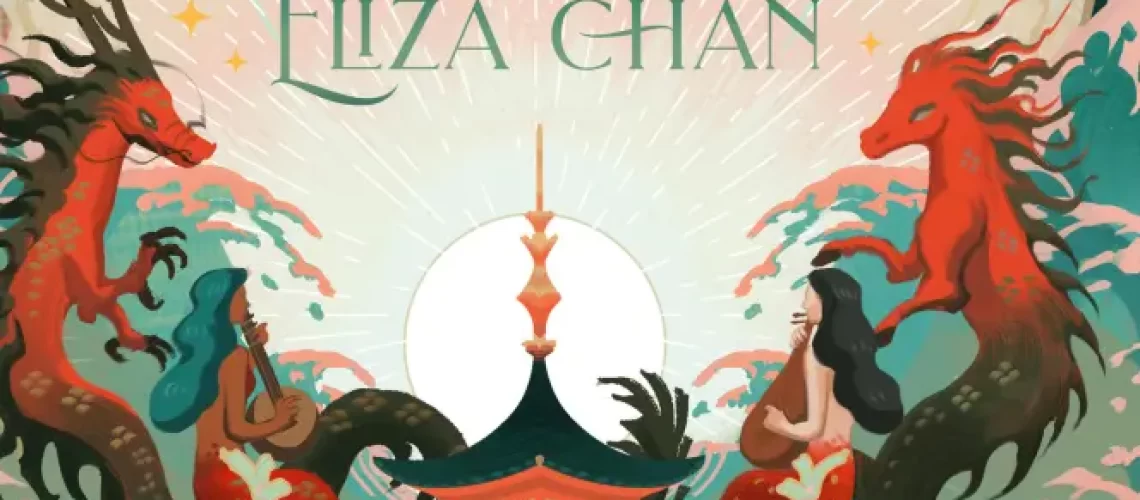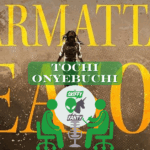Fathomfolk, by Eliza Chan (2024), is a fantasy novel about refugees, prejudice, families, friendship, love, manipulation, and trying to figure out the right thing to do. I really enjoy the worldbuilding and the emotional journeys of the (third-person) viewpoint characters, and how well the various elements were woven together. This is Chan’s first novel, and it’s wonderful!

In this secondary world, fathomfolk such as kelpies, sirens, seawitches, kappas (turtle people) and Asian-style water dragons have magic, and surface-dwelling humans have technology; however, humans have polluted the rising oceans to such an extent that most of the fathomfolk who have lungs along with gills and can survive on the surface are fleeing to the coastal cities. The humans treat these refugees as second-class citizens or even worse.
Dragon princess Nami and her student-activist friends are caught doing crime to protest fathomfolk oppression; her friends are imprisoned, while she’s merely exiled. Her brother Kai is an ambassador to the partly flooded city of Tiankawi, so she joins him there after some further misadventures. What’s not accidental is that to enter the city, she has to accept an inhibitor bracelet that prevents any violence against humans (who have no such restraint against hurting “salties”).
I know quite a few men who are as good and giving as Kai, so it’s not that he’s unbelievable, but he mostly exists here to shake his head sorrowfully at Nami and to be the adoring romantic partner of the other major protagonist, Mira. Although Kai and Mira love each other, it’s not an easy relationship, as she feels he’s been too sheltered to really understand her. She’s a half-siren who grew up in refugee quarters and struggled her way up to win promotion to the captaincy of the border guard, a token success story whom the city still scrutinizes for any perceived errors.
Mira also thinks her “perfect” brother is too sheltered (he’s working to gradually improve the lot of fathomfolk), and she doesn’t trust or respect cops, so she immediately starts turning to other people besides her involuntary new housemates. She becomes infatuated with a kelpie leader of the city’s fathomfolk-rights extremists.
The book’s other viewpoint character is Serena/Cordelia, the human-seeming shapeshifter wife of a city counselor who conceals her seawitch heritage while manipulating people and driving hard bargains to build up her political and magical powers. She’s been treating Mira’s mother for gill rot, a disease many fathomfolk catch as a consequence of the tainted waters here, and her son is a member of the city guard, which has the upper hand in its rivalry with Mira’s border guard.
The city itself is very interesting to read about, with its waterlogged layout that people navigate by foot, water taxis, and elevated rails, its various foods eaten by fancy folk and refugees, its geographic, socioeconomic, and political quarters and layers, and, unfortunately, its inhabitants’ quickness to judge events and people based on partial or faulty information.
I love how Chan presents all these facets of setting and character and weaves them together. I love how the characters face difficult choices (some arising from false pride, many imposed on them by external and developing factors but in a way that’s entirely believable), sometimes drifting with the metaphorical tides but often acting with empathy and courage (although sometimes misguided). I’m glad that different age groups are seen (child, young adult, older adults, matrons). I’m very interested in Chan’s exploration of diaspora and being othered.
Although Fathomfolk can be read on its own, I definitely look forward to the planned second book in Chan’s Drowned World duology. Some things that happen throughout the book, one of them totally unexpected by me, will have continuing, drastic reverberations on all the inhabitants of Tiankawi, and maybe the rest of the world, and I want to see what Chan does next!
Cover illustration by Kelly Chong; cover design by Ella Garrett.
Content Warnings: Ethnic slurs against refugees/fathomfolk, police repression, political repression such as inhibitor bracelets and curfews, riots, numerous deaths, horrific exploitation.
Comps: Certain spoilery elements of C.L. Polk’s Kingston cycle and N.K. Jemisin’s Broken Earth trilogy; Fonda Lee’s Green Bone series (particularly Anden’s expatriate storyline in the later books).
Disclaimers: None except thanks to my wonderful local library!







